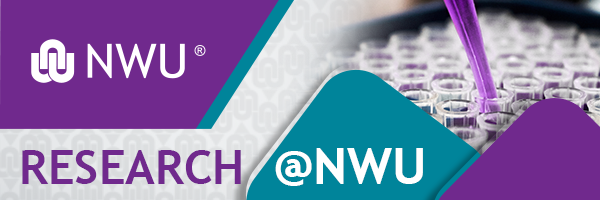NWU researchers help map the way forward for hydrogen in South Africa
The Earth is in trouble. It is suffocating under clouds of carbon dioxide emissions from the use of coal and other environmentally damaging resources to generate energy. These emissions are the primary cause of global warming, and if humanity wants to avoid the worst consequences of global warming*, we have to find alternatives for our energy needs.
Researchers at the NWU are constantly investigating new environmentally safe energy technologies. Hydrogen is a feasible alternative to fossil fuels, and with zero carbon emissions it is excellent for the generation of safer and greener energy. This is acknowledged in the recently launched Hydrogen Society Roadmap for South Africa, to which NWU researchers made significant contributions.
Dr Blade Nzimande, Minister of Higher Education, Science and Innovation, officially launched the Hydrogen Society Roadmap on 17 February this year. This essential national document was developed as a partnership involving the Hydrogen South Africa Infrastructure Centre of Competence (HySA CoC) at the NWU, the Department of Science and Innovation (DSI), KPMG and other stakeholders.
The Hydrogen Society Roadmap points the way to a greener and environmentally safer South Africa. Its focus is on potential industrial growth areas that would benefit from the production, storage and distribution of hydrogen and related research development and innovation, as well as on the promotion of gender equality and social inclusion as important benefits of the hydrogen economy.
Prof Dmitri Bessarabov, director of the DSI's HySA CoC on the NWU's Potchefstroom Campus, says the National Flagship Programme HySA has brought research funding of about R421 million to the NWU over the past 11 years. As part of the project, 212 fully refereed publications were produced jointly with the Council for Scientific and Industrial Research.
Towards a low-carbon economy
"This project is great for the academic and public awareness of our achievements. It also highlights our significant presence in Africa as a key player in the hydrogen space," Prof Bessarabov says. "Furthermore, it enhances our reputation for potential collaborators overseas."
He says the funding is evidence of the commitment of the South African government to generate new technology and to train local experts and students towards achieving the climate CO2 regulations of the Paris Agreement.
"In order to implement a low-carbon economy or a carbon-free economy, hydrogen needs to be produced from renewable energy sources such as solar power, wind and water. As this is new technology, the Roadmap provides government guidelines and indicates the prioritisation of how these hydrogen codes and standards will be implemented and in which sectors of the economy it (hydrogen) will first be used. There need to be safety standards, regulations and guidelines for stakeholders and industry," says Prof Bessarabov.
According to him, more than 40 countries have already published hydrogen roadmaps, which are mostly country-specific.
"We are very honoured and proud that the HySA CoC at the NWU was selected as a coordinator for the initial stage of the roadmap development, which was followed by a long inclusive process until the final document was born."
*Consequences of global warming and climate change include floods, droughts, rising sea levels, the extinction of animal species and vegetation and high temperatures. | 